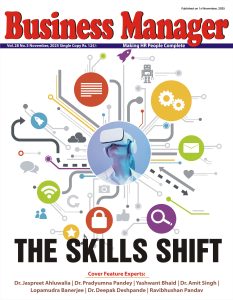Flexibility of supply is a key construct of the gig-worker economy. This construct brings unpredictability to the operations of an organization. Replication of specific tasks is likely to become difficult. Assurance of consistency & quality of products and services becomes a challenge.
Managing Flexible workforce
One of the biggest negative aspects of Gig employment is vulnerability to mental wellness. They are prone to negative impact due to job uncertainty and high pressure.
In the nature of such transactional work, therefore, loyalty and tenure have limited roles to play, and the current negotiating strength tends to predominate the situation.
The gig economy is here to stay. The question is whether organizations will treat it as a stop-gap solution- or as an opportunity to build a more inclusive, future-ready world of work.
Unlike traditional employees, gig workers lack job security, benefits, and structured career progression. HR can play a pivotal role in bridging this gap by designing engagement and motivation levers tailored to gig work.
With the advent of new technologies and AI, gig workers who embrace change will have better opportunities. Consequently, customers will benefit from enhanced experiences and services supported by AI.
The role of HR is very crucial to run a 360-degree assessment of the business model, long-term vision, and talent needs to be able to come up with the right steps to address the challenges of managing Flexible workforce.
The future of work, in my view, is about balance. Traditional jobs will remain important, but the gig model and AI-driven flexibility will coexist, creating a blended ecosystem of stability, skills, and adaptability.













